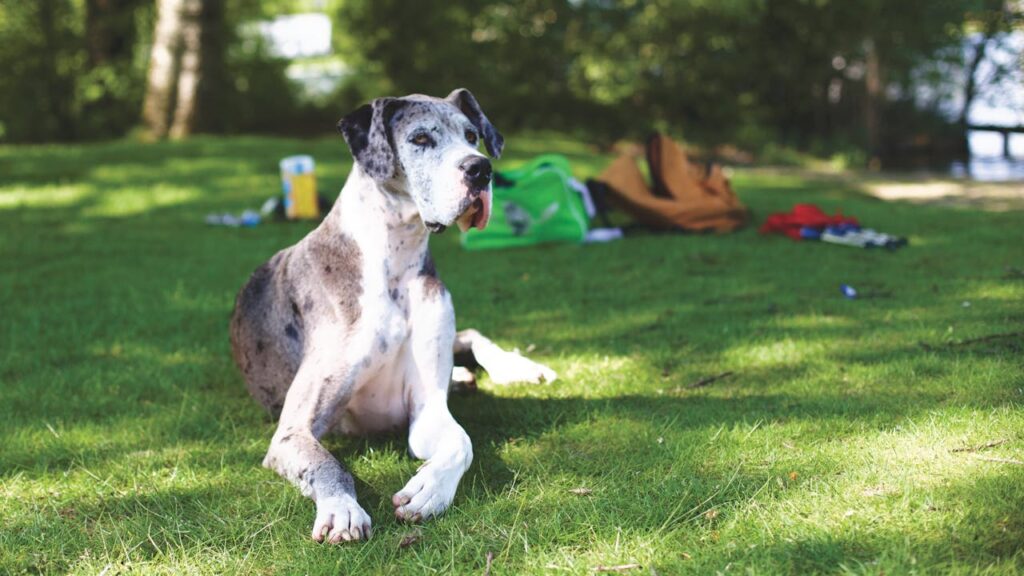If you’ve ever had the joy of living with a giant breed pet, you know they bring an equally giant amount of love and companionship into your life. However, these gentle giants come with their own set of unique health needs. Whether you own a Great Dane, Saint Bernard, or Mastiff, understanding how to care for their health can add years of happiness to your lives together. Let’s dive into some detailed tips to ensure your giant breed pet stays in tip-top shape.
1. Monitor their diet and weight carefully
Giant breeds are prone to obesity, which can exacerbate joint problems and lead to other serious health issues like diabetes or heart disease. Here’s what you can do:
- Feed a balanced diet: Choose high-quality food formulated specifically for large or giant breeds. These diets often include the right balance of calcium and phosphorus to support their bone growth.
- Avoid overfeeding: Giant breeds grow quickly, but overfeeding during puppyhood can lead to skeletal issues. Stick to recommended portion sizes.
- Control treats: Treats are fine in moderation, but ensure they’re low in calories and high in nutritional value.
2. Prioritize joint health
One of the most common issues in giant breed pets is joint problems, including hip dysplasia, arthritis, and elbow dysplasia. Prevention and early intervention are key:
- Supplement wisely: Talk to your veterinarian about joint supplements containing glucosamine and chondroitin.
- Provide low-impact exercise: Regular walks, swimming, and gentle play can strengthen muscles without putting undue stress on their joints.
- Invest in supportive bedding: Orthopedic beds can reduce pressure on joints and improve overall comfort.
3. Prevent bloat (gastric dilatation-volvulus)
Bloat is a life-threatening condition that affects giant breeds more commonly than smaller dogs. It occurs when the stomach fills with gas and twists, cutting off blood supply. To reduce the risk:
- Feed smaller meals: Instead of one or two large meals, feed smaller portions multiple times a day.
- Avoid exercise after eating: Keep your pet calm for at least an hour after meals.
- Consider a raised feeder: This may reduce the amount of air your pet swallows while eating.
Know the symptoms of bloat—including a swollen abdomen, restlessness, and unproductive vomiting—and seek immediate veterinary care if they occur.
4. Stay vigilant about heart health
Giant breeds are at a higher risk for heart conditions like dilated cardiomyopathy (DCM). Early detection is vital, so:
- Schedule regular checkups: Ensure your veterinarian performs routine cardiac screenings.
- Watch for symptoms: Fatigue, coughing, or difficulty breathing can indicate heart issues.
- Feed a heart-healthy diet: Consult your vet about foods or supplements that support cardiovascular health.
5. Provide mental and physical stimulation
Giant breeds are smart and can get bored if not mentally stimulated, leading to destructive behavior or anxiety. Keep their minds and bodies active with:
- Training sessions: Giant breeds often love learning new commands or tricks.
- Interactive toys: Puzzle feeders and toys can keep them entertained and engaged.
- Socialization: Introduce your pet to new environments, people, and other animals early on to build their confidence.
6. Mind their grooming needs
Grooming isn’t just about keeping your pet looking their best; it’s also essential for their health. Giant breeds often have unique grooming requirements:
- Regular brushing: Prevent matting and reduce shedding by brushing your pet weekly.
- Nail trims: Overgrown nails can cause discomfort and affect their gait.
- Skin checks: Giant breeds with folds or thick fur may be prone to skin infections. Regularly check for redness, irritation, or foul odors.
7. Make space for their size
Giant breeds need room to stretch out, move, and live comfortably. Ensure your home accommodates their size:
- Secure furniture: Their tails can act like wrecking balls!
- Provide large crates or beds: They need comfortable spaces where they can fully relax.
8. Keep up with regular veterinary visits
Because giant breeds are prone to several health issues, routine vet visits are non-negotiable. Your veterinarian can:
- Track growth patterns: Ensure your pet’s rapid growth is progressing healthily.
- Spot problems early: Many conditions, like joint or heart issues, benefit from early intervention.
- Provide tailored advice: Your vet can recommend specific diets, supplements, and treatments based on your pet’s needs.
9. Plan for their shorter lifespan
Unfortunately, giant breeds often have shorter lifespans than smaller dogs. While this is a sad reality, it makes every moment with them even more precious. Plan for their senior years by:
- Adjusting their diet: Switch to senior-specific food as they age.
- Providing extra comfort: Orthopedic bedding and ramps can help ease mobility issues.
- Cherishing every day: Create a lifetime of happy memories with your furry friend.
Your giant pet deserves giant love
Caring for a giant breed pet comes with challenges, but the rewards are immeasurable. By taking proactive steps to safeguard their health, you’re giving your gentle giant the best chance at a long, happy life.
Need personalized advice? Schedule an appointment at Atlas Animal Hospital today. Our team is here to help your giant breed thrive.

